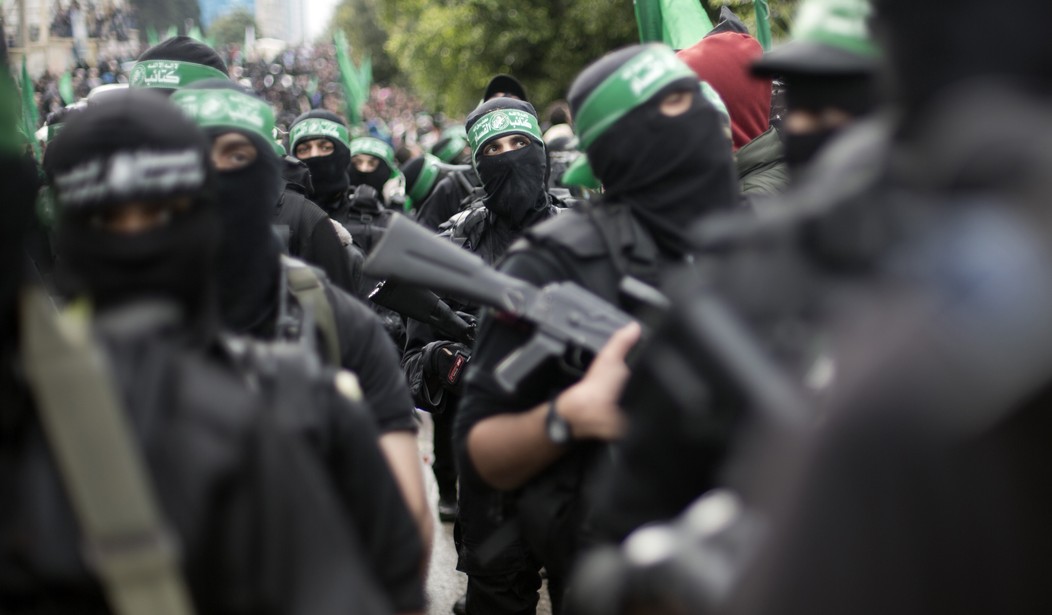The United Nations, major news media and other geo-strategic thinkers including Sen. Bernie Sanders (I-Vt.) sound the tocsin over the destruction Israel has wrought in the Gaza Strip in its war against Hamas. Hamas-run health officials put the death toll at 25,000; Israel estimates approximately 9,000 of those are terrorists.
War-caused misery of Palestinian Arabs in the Strip is undeniable. But outside American understanding of what can happen to an aggressor’s population?
In September, 1864, having maneuvered Confederate Gen. John Bell Hood’s forces out of their entrenchments in Atlanta, Union Gen. William T. Sherman issued orders concerning the city’s civilian population. As British military historian Brian Holden Reid recounts in The Scourge of War: The Life of William Tecumseh Sherman, Sherman instructed a subordinate to “take possession of all good buildings for Government purposes, and see they are not used as quarters. … Advise the people to quit now. There can be no trade or commerce now until the war is over.”
Sherman added that it would be best for any Unionists in the city to “go to the North with their effects, and secesh [secessionist] families to move on.” His own army, “badly in need of rest, refitting and recuperation,” according to Reid, required Atlanta for itself.
Sherman added, “if the people raise a howl against my barbarity and cruelty, I will answer that war is war and not popularity-seeking. If they want peace they and their relatives must stop war.”
He then wrote Hood, informing him that he intended to expel Atlanta’s civilians, allowing them to take their personal possessions. If Hood agreed, Sherman would order a two-day truce.
Recommended
According to Reid, the former accepted the truce but denounced the latter for an “unprecedented measure” of “studied and ingenious cruelty.” Sherman replied that Hood didn’t know much military history if he believed his own propagandistic allegation.
Instead, Hood and the Confederates needed to admit they began the war on corrupt premises and “perpetuated [it] in pride.” God himself eventually would judge them both on “whether it is more humane to fight with a town full of women … or to remove them in time to places of safety among their own friends and People.”
The Union general conceded to Atlanta’s mayor and city council members that his orders indeed would cause distress to their city’s civilians. But since the war would end only with defeat of the Confederate armies, military actions “make it necessary for the inhabitants to go away.” Then, famously, “war is cruelty, and you cannot refine it: and those who brought war into our Country deserve all the curses and maledictions a people can pour out.”
Japan brought World War II to the United States by bombing Pearl Harbor. Japanese civilian casualties in the war have been estimated at between 550,000 and 800,000 from a total population of 71 million, including those killed by the atomic bombs President Harry S. Truman ordered dropped on Hiroshima and Nagasaki.
After the Aug. 6, 1945 Hiroshima bombing, which according to some estimates killed one-third to half the city’s 340,000 people, Truman issued a statement. It read in part, “the Japanese began the war from the air at Pearl Harbor. They have been repaid many fold. And the end is not yet. … Let there be no mistake; we shall completely destroy Japan’s power to make war.”
And Truman reminded the world of where responsibility lay: “It was to spare the Japanese people from utter destruction that the ultimatum of July 26 was issued at Potsdam. Their leaders promptly rejected that ultimatum. If they do not now accept our terms they may expect a rain of ruin the like of which has never been seen on the earth.”
Three days later the United States dropped a second nuclear bomb on Nagasaki. Six days after that, Japan surrendered.
The Biden administration pressures Jerusalem to curtail its war against Hamas. The terrorists began the conflict by massacring 1,200 people in Israel and taking 240 hostage on October 7 and continue, firing rockets at Israel. Marchers in Washington, London, Berlin, Paris and elsewhere demand a ceasefire. Israeli Prime Minister Benjamin Netanyahu vows to fight until his country destroys Hamas’ ability to threaten Israel or rule Gaza.
He might add, in Sherman’s spirit, responsibility for continued destruction and death lies with Hamas, with the Palestinians who refuse to admit they began the war for corrupt purposes and perpetuate it from malignant pride, and with Jew-haters screaming for the Jews to stop defending themselves.
Eric Rozenman is communications consultant for the Jewish Policy Center and author, most recently, of From Elvis to Trump, Eyewitness to the Unraveling: Co-Starring Richard Nixon, Andy Warhol, Bill Clinton, the Supremes and Barack Obama!
Any opinions expressed above are solely his own.

























Join the conversation as a VIP Member